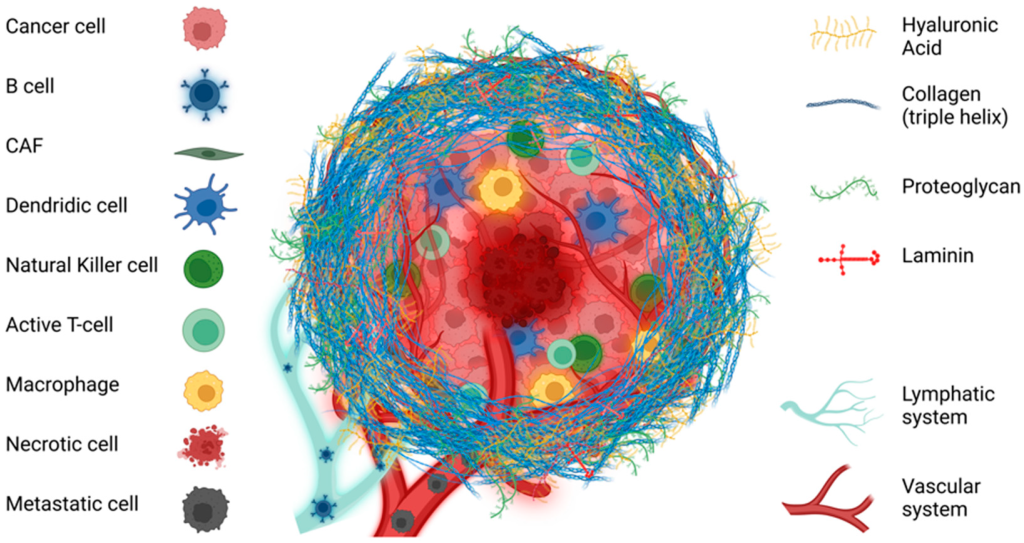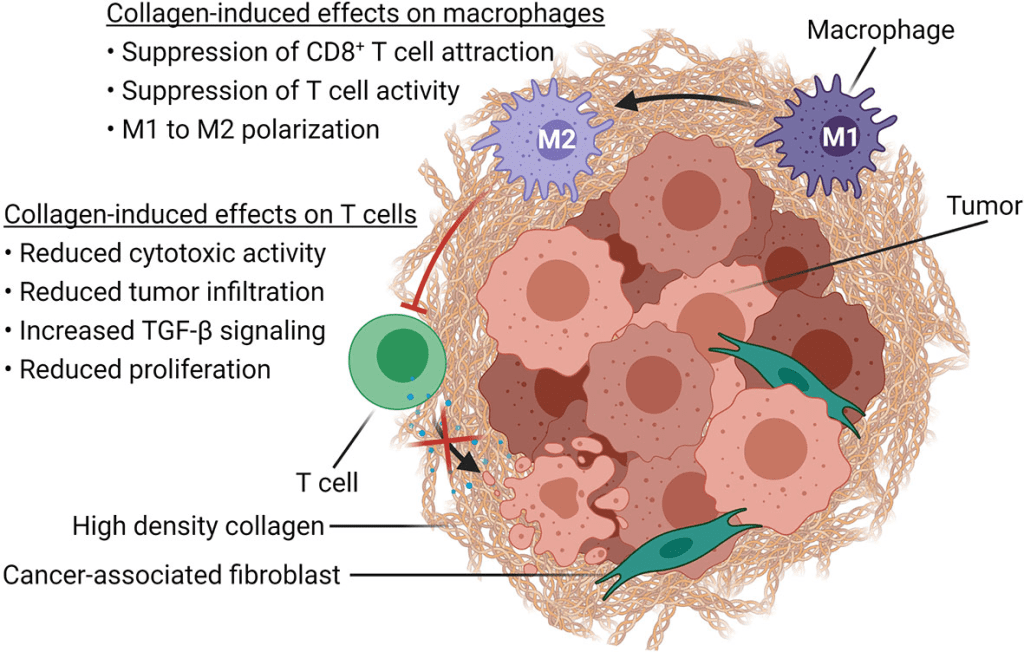Cancer is still one of the leading causes of death around the globe. Despite groundbreaking advancements in early detection, treatment, and prevention, the disease continues to evade total control. But a 2021 study published in Nature Cancer might have just added a powerful new piece to the puzzle—type III collagen.
Researchers have uncovered something fascinating: this specific collagen protein may be able to keep cancer cells asleep—in other words, dormant—which could change how we prevent metastasis and tumor recurrence forever.
Let’s dive into what this means, how it works, and what it could mean for the future of cancer therapy and human health.
Understanding the Role of Collagen in Cancer

You might recognize collagen from skincare ads and health supplement labels, but its influence extends far beyond youthful skin. Collagen is the body’s most abundant protein, providing structure to your skin, bones, muscles, and connective tissues.
Among its many types, type III collagen has caught the attention of cancer researchers. Why? Because it appears to form a barrier that keeps cancer cells dormant—and that’s a big deal.
In mouse models, scientists observed that dormant cancer cells were surrounded by higher concentrations of type III collagen. In contrast, active, spreading cancer cells had significantly lower levels of this protein nearby. The same pattern showed up in human patients, particularly in those with head and neck cancers.
When Type III Collagen Drops, Cancer Wakes Up
The study also revealed that over time, the amount of type III collagen around these cells naturally declines. When it dips below a certain threshold, dormant cancer cells seem to “wake up,” becoming active and invasive again.
More intriguingly, researchers noticed a shift in collagen’s structure. It changed from a wavy, protective formation to a more linear, vulnerable one—and that structural change seemed to disrupt important signaling pathways that had previously kept cancer cells inactive.
This isn’t just a random correlation. It’s a functional relationship—collagen isn’t just hanging around, it’s actively keeping cancer cells in check.
Video : Learn about Survivin, a protein that plays a significant role in cancer cell survival and growth
How Scientists Captured Cancer Cells in Action
Thanks to advanced live-imaging microscopy, researchers could watch these changes unfold in real time inside living mice. This gave them critical insight into how tumors evolve and spread—and how manipulating collagen might be the key to stopping them.
The goal isn’t just to observe. It’s to intervene.
Imagine a future where, instead of removing cancer cells, doctors could neutralize them—safely keeping them dormant using something as natural as a protein already found in your body.
The Clinical Impact: Predicting and Preventing Tumor Recurrence
As Dr. Jose Javier Bravo-Cordero, the study’s senior author, explained:
“Our findings may lead to a novel biomarker to predict tumor recurrences, as well as a therapeutic intervention to reduce local and distant relapses.”
This statement is monumental. If a tumor’s collagen environment can help predict whether cancer will spread, oncologists could personalize treatments and surveillance. Even better, they could develop therapies aimed not at killing cancer cells—but at keeping them frozen in a dormant state.
It’s a fresh perspective on cancer care—less about destroying, more about disabling.
Can We Harness Collagen to Fight Cancer?

So here’s the big question: Can we use type III collagen to stop cancer from spreading?
The answer is: possibly. Scientists are now exploring the potential of collagen-based scaffolds that mimic the protective environment of dormant tumors. These scaffolds could be implanted or stimulated within the body to keep stray cancer cells from reactivating.
Although we’re far from human trials, the early data is promising. In mice, researchers successfully maintained dormancy in roughly 80% of cases using this approach.
That’s huge.
Boosting Collagen Naturally: Does It Help?
While we wait for medical breakthroughs, there’s nothing wrong with supporting your body’s natural collagen levels. Collagen production declines with age, and certain lifestyle habits can accelerate the process.
Want to keep your collagen levels in check? Here’s how:
- Eat collagen-rich foods: Bone broth, chicken skin, fish skin, and egg whites are great choices.
- Take collagen supplements: Hydrolyzed collagen or peptides are easily absorbed and widely available.
- Load up on vitamin C: It’s crucial for collagen synthesis. Think citrus fruits, bell peppers, and strawberries.
- Avoid collagen killers: Excess sugar, smoking, and UV exposure break down collagen fibers.
- Stay hydrated and sleep well: Your body needs both to maintain strong, healthy connective tissue.
While eating more collagen won’t directly prevent cancer, these habits support overall cellular health—and that’s always a win.
Choosing the Right Collagen Supplement

With the growing buzz around collagen, the market is flooded with options. But not all supplements are created equal. Here’s what to look for:
- Type matters: Look for Type III if your goal is connective tissue and vascular health.
- Go clean: Choose products from grass-fed, wild-caught, or pasture-raised sources.
- Check absorption: Hydrolyzed collagen (also called peptides) is the most bioavailable form.
- Review certifications: Look for third-party testing and GMP (Good Manufacturing Practice) seals.
- Avoid fillers and sweeteners: Keep it simple for best results.
The Road Ahead: What This Means for Cancer Care
Make no mistake: this study is early-stage science. What works in mice doesn’t always translate to humans. But the concept of using collagen—something natural, structural, and already part of us—to regulate cancer cell behavior is revolutionary.
If further research confirms these findings, it could lead to:
- Personalized cancer therapy based on collagen biomarkers
- Collagen-enhancing drugs to delay or prevent metastasis
- New diagnostic tools to predict recurrence risks
- Less toxic treatment options focused on dormancy rather than destruction
The potential here is game-changing.
Video : Top 10 Anti Cancer Foods (Part 1) – YOU NEED TO EAT THESE!
Conclusion: Collagen—More Than Just Skin Deep
We tend to think of collagen as a cosmetic tool. But this research shows that it may play a far more powerful role—as a natural shield against cancer. If science can learn how to manipulate and maintain the collagen-rich environment that keeps cancer cells dormant, it could transform the way we think about cancer treatment.
No more waiting for tumors to grow. No more chasing cancer with aggressive chemotherapy. Just prevention through stabilization.
It’s a bold vision—but one that could redefine cancer care as we know it.


